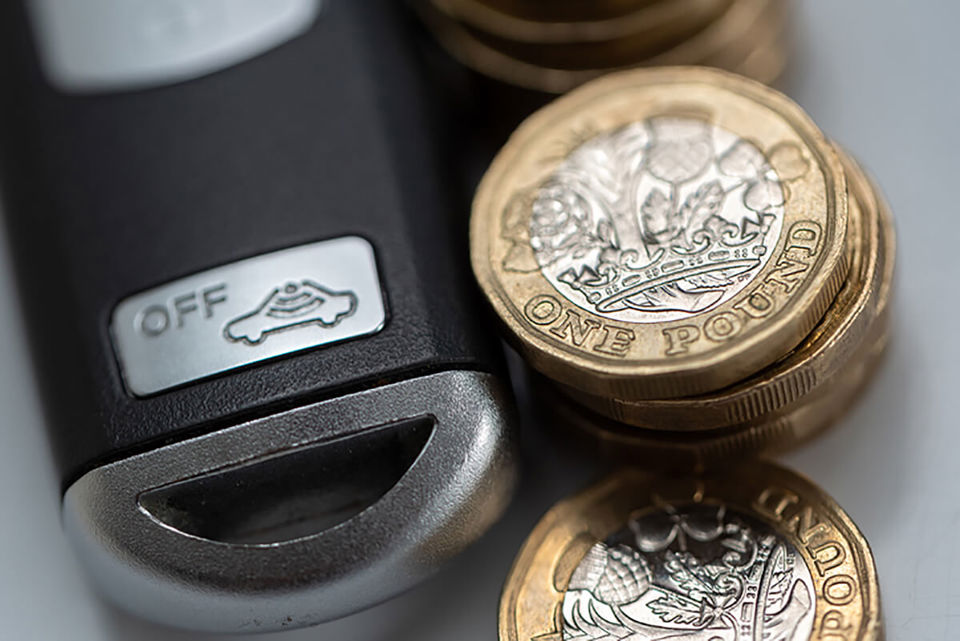The ending of electric vehicle (EV) exemptions for road tax have been criticised by fleet sector, particularly for zero-emission vans.
Electric cars and vans will be subject to vehicle excise duty (VED) for the first time from April 2025, with electric cars costing more than £40,000 also attracting the Expensive Car Supplement, which is currently £410 a year.
New zero-emission cars registered on or after April 1, 2025, will be liable to pay the lowest first-year rate of VED (which applies to vehicles with CO2 emissions 1 to 50g/km) currently £10 a year.
From the second year of registration onwards, they will move to the standard rate, currently £190 a year.
Zero emission cars first registered between April 1, 2017, and March 31, 2025, will also pay the standard rate.
Zero-emission vans, meanwhile, will move to the rate for petrol and diesel light goods vehicles, meaning fleets will have to stump up an additional £335 a year for each electric van they operate.
The tax hike for EVs was announced by the Government in 2022, with Treasury estimates suggesting the changes will be worth an additional £515 million next tax year, rising to almost £1 billion (£985m) the following year and £1.595bn in 2027/28.
The ending of electric vehicle (EV) exemptions for road tax have been criticised by fleet sector, particularly for zero-emission vans.
Electric cars and vans will be subject to vehicle excise duty (VED) for the first time from April 2025, with electric cars costing more than £40,000 also attracting the Expensive Car Supplement, which is currently £410 a year.
New zero-emission cars registered on or after April 1, 2025, will be liable to pay the lowest first-year rate of VED (which applies to vehicles with CO2 emissions 1 to 50g/km) currently £10 a year.
From the second year of registration onwards, they will move to the standard rate, currently £190 a year.
Zero emission cars first registered between April 1, 2017, and March 31, 2025, will also pay the standard rate.
Zero-emission vans, meanwhile, will move to the rate for petrol and diesel light goods vehicles, meaning fleets will have to stump up an additional £335 a year for each electric van they operate.
The tax hike for EVs was announced by the Government in 2022, with Treasury estimates suggesting the changes will be worth an additional £515 million next tax year, rising to almost £1 billion (£985m) the following year and £1.595bn in 2027/28.
At a time when the Government is wanting to increase EV adoption rates, Aaron Powell, fleet director at Speedy Hire, thinks the tax hike is a bad idea.
He told Fleet News: “The Government is forcing people down this route but want to tax us for having to do so.
“To encourage people to move to EVs, which is a difficult task anyway, they should encourage not discourage by placing tax on the vehicles, that are already considerably more expensive than a fossil fuelled vehicle.”
The Society of Motor Manufacturers and Traders (SMMT) estimates that in 2025, when the zero-emission vehicle exemption ends, seven in 10 EVs will attract the Expensive Car Supplement for cars with a list price above £40,000.
Research presented at the recent Road to Zero conference, organised by the British Vehicle Rental and Leasing Association (BVRLA), showed that the average new price of a battery electric vehicle (BEV) is £49,165, compared to £37,435 for an internal combustion engine (ICE) car.
Paul Holick, chair of the Association of Fleet Professionals (AFP), is not surprised the Government is introducing the so-called ‘luxury’ car tax on battery electric vehicles (BEVs).
“It’s a way of pushing OEMs into producing cheaper vehicles,” he said. “The reason why everyone's interested in Chinese brands and new entrants is because the market needs cheap EVs, not just in the primary life, but the secondary life as well.
“There’s a societal issue about ‘how do we get low-income families into used EVs’ and the only way to do that is driving a cheaper alternative.”
Dunstan Power, director of EV charging design consultancy, Versinetic, is concerned that the luxury cat tax will also affect used EVs, surprising second-hand buyers with an unexpected cost.
“That will only depress the used EV market and slow overall adoption rates even further,” he said. “In the current climate, thanks to the high cost of advanced battery technology, even non-luxury model EVs cost more than the £40,000 threshold. So, the luxury car tax will impact middle-income families striving to adopt greener technologies.”
He added: “Such mixed signals are likely to undermine public trust and hinder the transition towards sustainable transportation altogether.
“While the luxury car tax aims to generate revenue, it will have adverse effects on EV adoption and market stability, which will only act as a blow to the UK's green efforts.”
Electric van market struggles

The Association of Fleet Professionals (AFP) called for the introduction of VED on electric vans to be scrapped in its Tax and Regulation Manifesto, published prior to the General Election.
Hollick told Fleet News: “I think vans are the challenge of our generation to electrify or decarbonise and to have a backward step on VED is just not good at the moment.
“I’m hoping the Government, particularly with the dialogue we’re having with OZEV (Office for Zero Emission Vehicles), might have a look at it again.”
Hollick wants the Treasury to postpone the tax increase for vans for “at least” two or three years to help fleets make the switch away from diesel vans.
The electric van market is far from established, struggling to meet the sort of market share seen in the electric car market, driven by low benefit-in-kind (BIK) tax for electric company cars.
New, fully electric van registrations fell to just 1,415 units in July – a 14.6% decline – according to the latest figures published by the SMMT.
Since January, battery electric vehicles (BEVs) have accounted for 5.1% of all new vans – a share that includes those weighing up to and equal to 3.5 tonnes (4.8%) and those weighing above 3.5 to 4.25 tonnes (0.3%) – meaning zero emission uptake is down 7% across the year.
The SMMT now expects registrations of electric vans under 3.5t to hold 6.6% of the market by year end, somewhat shy of the 10% demanded by the Zero Emission Vehicle (ZEV) Mandate.
Registrations of new electric cars, however, were up 18.8% in July, resulting in an overall market share of 18.5%. Overall, battery electric cars account for 16.8% of the new car market, year-to-date.
The fleet sector is urging the new Government to introduce measures to help electric van adoption outlined in the the Zero Emission Van Plan.
Led by the BVRLA, the van plan was launched earlier this year in partnership with the AFP, Logistics UK, Recharge UK and the EV Café, and supported by Fleet News.
It calls on the Government to provide greater fiscal support, improve charging infrastructure and remove regulatory barriers to help accelerate uptake of full electric light commercial vehicles (LCVs). You can view the Zero Emission Van Plan here.
Login to continue reading.
This article is premium content. To view, please register for free or sign in to read it.


























Mike1961 - 13/08/2024 16:38
I'm not sure why people are surprised at this news.